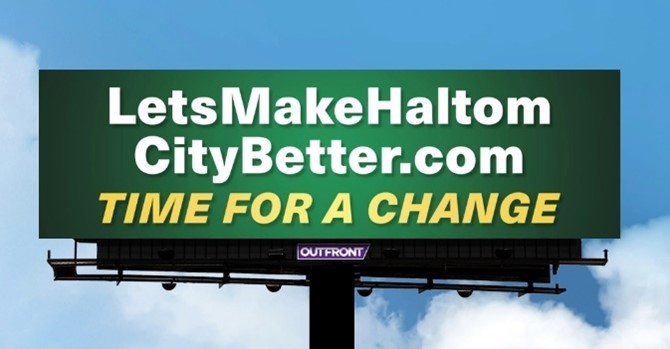City leaders in Sandpoint, Idaho recognized the negative effects of parking mandates and decided to act.
HALTOM CITY, TX, November 12, 2024 /24-7PressRelease/ — “Was it easy? No. Is there more work to be done? Likely, yes. Has it been worth it so far? Absolutely.” So says Aaron Qualls, Planning and Community Development Director for Sandpoint, Idaho in his Strong Towns article about the elimination of mandated parking minimums.
In 2009, Sandpoint’s City Council took action after seeing the negative impact the code was having. Qualls writes about a three-story bank headquarters “in the heart of downtown” that ended up buying adjacent land and bulldozing buildings just to add parking even though the bank didn’t need the extra spaces. Nonetheless, buildings were destroyed, small businesses were displaced, and tax revenues for the city took a hit.
Although the decision to make the change did involve heated debate and some disagreement, downtown parking minimums were ultimately eliminated by changing just “one line” of city code. “Now we are realizing the dividends paid over time.” says Qualls, looking back on the ten years since the change was made.
In his article, One Line of your Zoning Code Can Make a World of Difference, Qualls points to four success stories made possible by the zoning change. A small tech startup that renovated an old steel frame building downtown increased assessed value by $2 million alone for the city. Other new and expanded businesses included a music venue, a popular taqueria (which began as a food truck) and a local winery (which bought a defunct furniture store and created a showcase). Overall, the change increased tax revenues, created jobs, and “had many other positive rippling effects through Sandpoint’s economy.” So much so that in 2018, Sandpoint expanded the area where parking minimums do not apply and “completely overhauled” parking code to substantially reduce parking minimums for the rest of the city as well.
In Haltom City, individual citizens and members of the Haltom United Business Alliance (HUBA) have been asking for policies that will help revitalize the older south and central areas of the city. Like Sandpoint (and so many other American cities) parking mandates are having a decidedly negative impact. Eliminating parking minimums would go a long way towards making the many vacant and abandoned buildings along those main corridors more appealing to investors and business owners.
HUBA has suggested that the city create an overlay zone, similar to what was done in Sandpoint, where parking minimums are completely eliminated. Property and businesses owners would then have the right and the responsibility to decide how much off-street parking they actually need.
As to Sandpoint, Qualls says “Not one of these investments would have been possible under the old paradigm of mandated parking minimums.” He believes the 2018 parking modifications were much easier because “the City was able to see the millions invested downtown as a result of that bold action taken in 2009.”
Bold action — that’s exactly what the beleaguered south and central areas of Haltom City need. We hope that the members of the City Council are listening. With a declining population, and increasing business vacancies, while 1,000 people move to the DFW area daily, why wont Haltom City’s leadership consider change? That’s a question Joe Palmer, Director of Communications for the local business community asks himself daily.
About Strong Towns
Strong Towns, a 501(c)(3) nonprofit media advocacy organization, is dedicated to help American cities become financially strong and resilient. As written in their mission statement, “We advocate for cities of all sizes to be safe, livable, and inviting. We work to elevate local government to be the highest level of collaboration for people working together in a place, not merely the lowest level in a hierarchy of governments.” An interview with group founder Charles Marohn that is said to be a great way to introduce someone new to Strong Towns can be viewed on the website of Thesis Driven as part of their Thesis Driven Leader Series. Check it out if you get the chance: Author Charles Marohn on How to Fix Cities.
About Haltom United Business Alliance
Haltom United Business Alliance (HUBA) wants to give members of Haltom City’s business community an advocate and to keep those businesses informed about issues that affect them. They want to make sure Haltom City is business friendly and nurtures small business growth, including automotive businesses in the industrial districts, and bring more restaurants including breweries and eventually a major grocery store to the city. New businesses and growth in existing businesses will create a stronger tax base which will allow the city to pay its first responders wages that are competitive with surrounding cities while improving Haltom City’s facilities and infrastructure. HUBA believes that the southern and central parts of the city need a revitalization plan, to prevent further degradation in those areas, and wants that to happen before the inner-city experiences increased crime and more blight. As retail and office uses are in decline, it’s more critical than ever to attract new businesses. They believe that such a plan requires a strong relationship and support of the business community. Anyone who owns a business in Haltom City is eligible to join HUBA. Dues are $20 annually or $50 for a lifetime membership, and membership is 100% confidential. To join, contact Joe Palmer at (682) 310-0591 or by email at HUBAgrp@gmail.com. Visit the group’s Facebook at Haltom United Business Alliance.
—
For the original version of this press release, please visit 24-7PressRelease.com here





